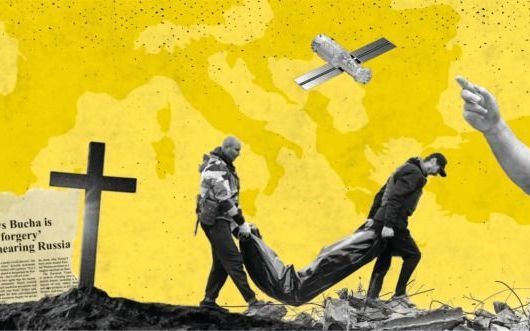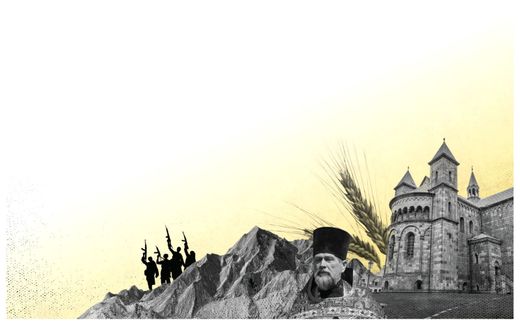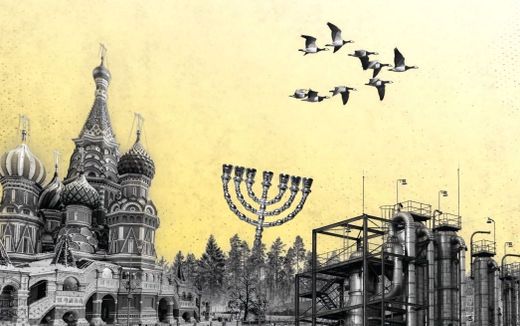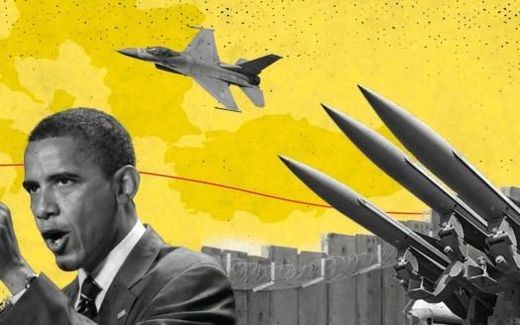The truth as the first casualty in war (part 5/6)
18-04-2022
Opinion
Jakob Hoekman, RD

Illustration RD, Corné van der Horst
Opinion
The year is 31 BC. A fierce battle rages in Rome over who will become the next ruler of the vast Roman Empire. The battle is between the great general Mark Antony and the no less great politician Octavian, better known as Augustus. Peace lies ahead, under Emperor Augustus Rome would face a time without civil wars after a century of mutual bloodshed.
But that time has not come yet in the year 31. Before unity can be achieved, the last opponents must first be defeated. And Octavian, however good history later judges him, shuns no means to that end.
With a finely tuned antenna for public opinion, he resorts to the tool stronger than any weapon: fake news. Octavian helps spread rumours about how Mark Antony would almost always be under the influence. Also, and even more deadly, Octavian portrays his rival as unpatriotic: as someone who squanders Roman values.
Successfully. Not much later, both Mark Antony and his beloved Cleopatra would commit suicide. Octavian will be the new ruler of Rome for the next forty years or so. Partly thanks to a fake news campaign.
In short, fake news is as old as the road to Rome. Octavian was not the first to use the weapon successfully and certainly not the last. A few decades later, Roman and Jewish leaders spread the rumour that the body of a certain Jesus of Nazareth had been stolen —a myth that would be repeated in many variations in the millennia that followed.
It is not without reason that someone like the apostle Paul does fact-checking: he invokes sources that have seen the risen Christ with their own eyes – sources that could be checked at the time.
But what if you can no longer check the sources? What if a government shuts down information that doesn't fit in its lane? That is often the case with successful war propaganda. During wars there are enormous interests at stake and rulers find playing public opinion with their version of the truth too tempting to ignore. It is not without reason that a well-known proverb goes that the first casualty in a war is usually the truth.
This is especially true after the invention of the printing press. For example, the British King George II had to put down a rebellion around 1750, while the rebels spread the fake news that the king was sick and unable to rule. That was widely picked up. In the end, the king won, but the damage to his image was already done.
Another example is how the British media in the First World War blatantly spread the lie that the Germans would take fat from British soldiers and then make soap from it.
Today is no different. Russian TV viewers are hearing about a "special operation" in Ukraine these days. That is to say the least heavily euphemistically; usually a complete misrepresentation is given.
Checking facts is also difficult. Russia has blocked all kinds of social media. It is only possible to get unfiltered information by using VPN.
The result is a surreal society in which the citizens of two neighbouring countries seem to live in parallel worlds. Many Russians who do not have access to non-Russian news sources find it difficult to believe what is actually happening in Ukraine.
But the other side is not beyond doubt either. Last year, the Ukrainian government banned media affiliated to Russia. In recent weeks, there have also been examples of Ukrainian propaganda that turned out to be incorrect.
Even in the European Union, Russian media have been curtailed again and again, something that can count on strong criticism from, among others, the European Federation of Journalists. Because don't you end up on the same slippery slope as your opponent: banish certain voices because they don't suit you?
In the fight for the truth, it is important that mass slaughters such as the one at Bucha, which made the headlines all over the world this week, are investigated as critically as other (alleged) war crimes. Who were the dead? What do eyewitnesses say? What reason could the Russians or possibly the Ukrainians have for inflicting this horror? The closer the war is, the harder it is to keep asking these kinds of questions objectively. The questioner runs the risk of being immediately placed in a certain camp.
The cure? Check, check and check again. By objective investigative bodies, by neutral parties, by journalists on the spot. This fact-checking is very important in a time of great uncertainty about fake or real.
Although an organisation such as the Dutch public broadcaster NOS has to endure a lot of criticism, that is exactly what the NOS is doing in this time of war in Eastern Europe. With the NOS Osint initiative (Open Source Intelligence), the organisation succeeds in distinguishing fake from real in various cases.
Thanks to in-depth research by, among others, The New York Times and Bellingcat, we now know that bodies had been lying there on the street in Butcha for weeks – and therefore indeed ended up there under the Russian occupation. Moreover, transparent reporting means that everyone can check this themselves.
This does not solve a much deeper problem: that not everyone believes in the existence of an objective truth. But even at a time when truth has become a social construct for many, researchers have an important obligation to continue to emphasise that there is such a thing as truth. And that that truth must be given a voice – so that evil does not have the last word.
This article is translated by CNE.news. It was published previously in Reformatorisch Dagblad on April 11th, 2022.
Related Articles






